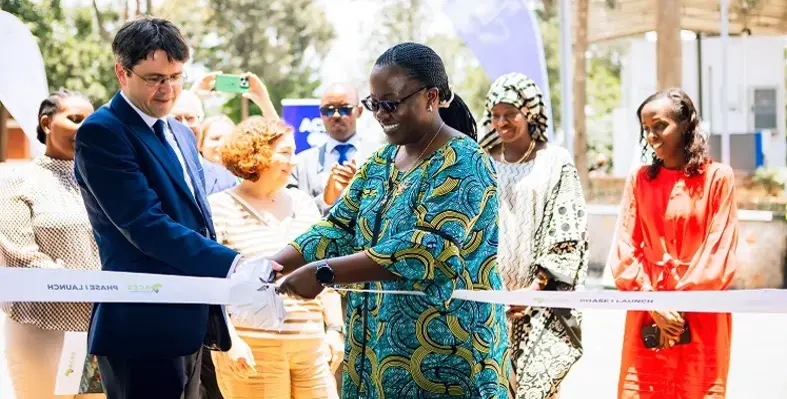The Africa Centre for Excellence for Sustainable Cooling and Cold-Chain (ACES) has been officially opened in Kigali
The project has been developed by the governments of UK and Rwanda, UN Environment Programme, the University of Rwanda and the University of Birmingham. By mid-2024 ACES is expected to house an Environment Test Chamber, a facility to enable the testing and certification of equipment that is tailored to African needs. Furthermore, it will host the largest single demonstration of cold-chain equipment of all scales and applications that will be complemented by modern training facilities and inclusive courses.
Rwanda’s Minister of the Environment, Jeanne d’Arc Mujawamariya, formally opened ACES in front of government officials, international VIPs and select guests. “ACES represents a significant milestone in our collective journey towards a more sustainable, equitable, and resilient food and health systems for Africa,” she remarked at the launch. “By leveraging cutting-edge technologies and innovative solutions, ACES will empower farmers, healthcare workers, and stakeholders across various sectors to mitigate losses, enhance resilience, and promote sustainable development.”
Toby Peters, centre for sustainable cooling director and professor of cold economy at the University of Birmingham and Heriot-Watt University, added, “We have highlighted the pivotal role of cold-chain – and indeed cooling - as critical infrastructure especially in the context of a warming world. Today, we have a clear imperative for change.
“With ACES bringing together more than 60 researchers and experts from various countries, including more than half based in Africa and India, as well as industry and international development agencies, we now have the frontline capability to accelerate a resilient, sustainable, and inclusive transformation on a systemic level.”












